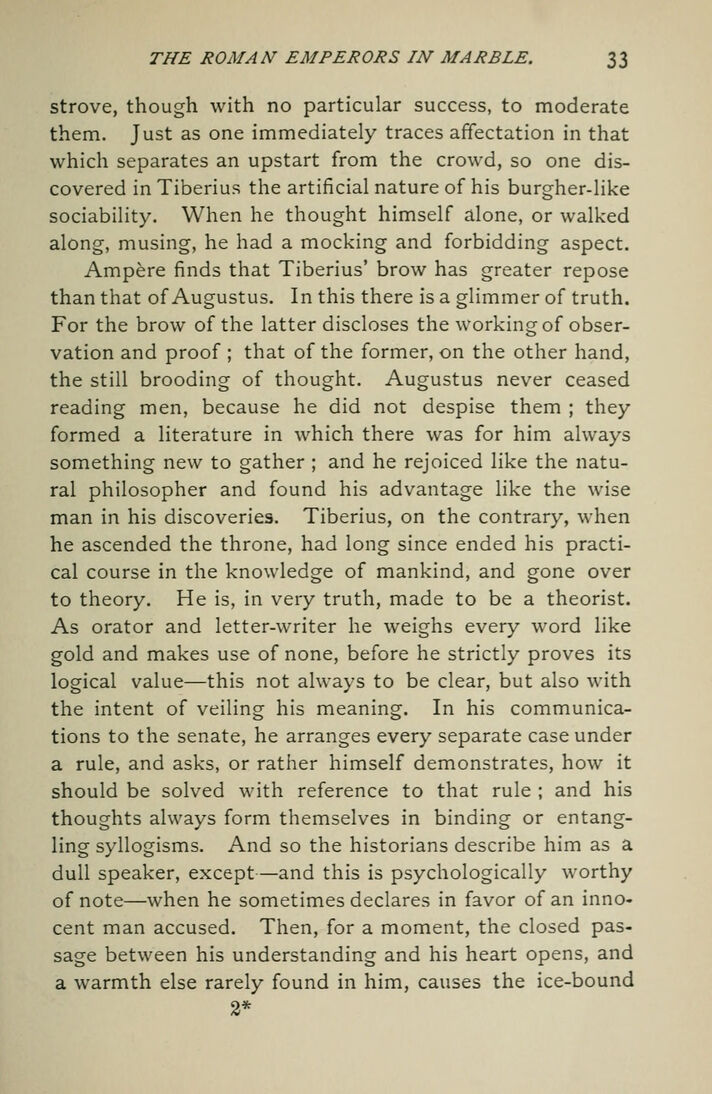
Full resolution (JPEG) - On this page / på denna sida - The Roman Emperors in Marble - 2. Tiberius

<< prev. page << föreg. sida << >> nästa sida >> next page >>
Below is the raw OCR text
from the above scanned image.
Do you see an error? Proofread the page now!
Här nedan syns maskintolkade texten från faksimilbilden ovan.
Ser du något fel? Korrekturläs sidan nu!
This page has never been proofread. / Denna sida har aldrig korrekturlästs.
THE ROMAN’ EMPERORS IN MARBLE. 33
strove, though with no particular success, to moderate
them. Just as one immediately traces affectation in that
which separates an upstart from the crowd, so one dis-
covered in Tiberius the artificial nature of his burgher-like
sociability. When he thought himself alone, or walked
along, musing, he had a mocking and forbidding aspect.
Ampere finds that Tiberius’ brow has greater repose
than that of Augustus. In this there is a glimmer of truth.
For the brow of the latter discloses the working of obser-
vation and proof ; that of the former, on the other hand,
the still brooding of thought. Augustus never ceased
reading men, because he did not despise them ; they
formed a literature in which there was for him always
something new to gather ; and he rejoiced like the natu-
ral philosopher and found his advantage like the wise
man in his discoveries. Tiberius, on the contrary, when
he ascended the throne, had long since ended his practi-
cal course in the knowledge of mankind, and gone over
to theory. He is, in very truth, made to be a theorist.
As orator and letter-writer he weighs every word like
gold and makes use of none, before he strictly proves its
logical value—this not always to be clear, but also with
the intent of veiling his meaning. In his communica-
tions to the senate, he arranges every separate case under
a rule, and asks, or rather himself demonstrates, how it
should be solved with reference to that rule ; and his
thoughts always form themselves in binding or entang-
ling syllogisms. And so the historians describe him as a
dull speaker, except—and this is psychologically worthy
of note—when he sometimes declares in favor of an inno-
cent man accused. Then, for a moment, the closed pas-
sage between his understanding and his heart opens, and
a warmth else rarely found in him, causes the ice-bound
a*
<< prev. page << föreg. sida << >> nästa sida >> next page >>